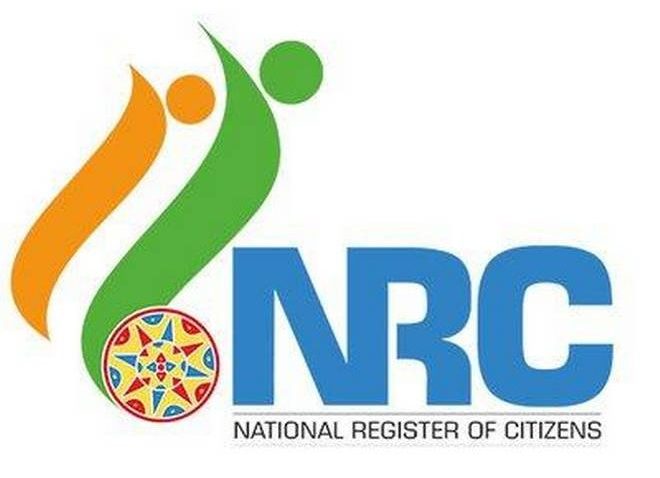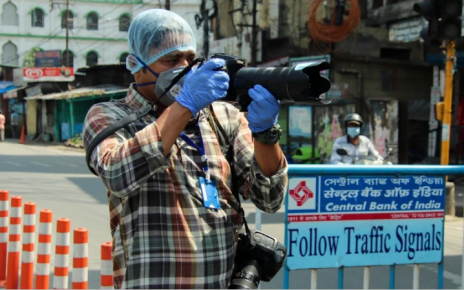Pakistan Today
01 October 2019
As the Union government in New Delhi has virtually decided for the screening of all illegal migrants taking shelter in Bharat (officially known as India) though National Register of Citizens (NRC) for a nationwide database of genuine citizens (also detect illegal foreigners and asylum seekers), one can apprehend more chaos & confusion across the populous country in the days to come.
Slowly but steadily the demand for NRC updating in the line of Assam has gained momentum. Hardliner nationalist politicians from various provinces, mostly ruled by Bhartiya Janata Party (BJP), have come out openly in favour of the NRC process which finally inspired the Union home minister Amit Shah to declare that it would be introduced across India so that the illegal foreigners could be identified and taken appropriate actions against them under the law.
Even President Ram Nath Kovind in one of his recent addresses in the Parliament mentioned that the government is aware of security threat because of illegal infiltrators and hence New Delhi has shown interest in implementing the NRC across the country on a priority basis. Prime Minister Narendra Modi is expected to launch a nationwide NRC with the line of Assam, where the NRC was updated for the first time after 1951.
Assam in the northeastern part of India has recently invited international media headlines for the massive NRC updating process. As over 1.9 million people, combining mostly Bengali speaking Muslim and Hindu, were excluded from the final NRC in Assam, their fates are now hung on the foreigner’s tribunals and subsequent higher court orders. If they fail to prove their Indian citizenship, they would be sent to the detention centres, seventh one of which is now under construction in western Assam, adjacent to northern Bangladesh.
On principle, the purpose of updating NRC is to prepare a list of all genuine Indian citizens. The hectic process was indirectly meant for identifying the illegal migrants residing in Assam since 25 March 1971. It was mandatory for every resident in the State to apply for including their names in the updated NRC. Directed and monitored by the Supreme Court, the process witnessed the participation of 3,30,27,661 applicants.
The process of receiving NRC application forms, following the apex court order in 2013, started in May 2015 and ended on 31 August 2015. All applications were scrutinised by over 50,000 Assam government employees, supported by over 7,000 data entry operators, for all these years and they took the decisions for inclusion and exclusion of individuals as statutory officers. The individuals, who (or their descendants) appear in 1951 NRC, voters’ lists or other relevant government documents issued prior to the midnight of 24 March 1971 were recognised for inclusions.
The prescribed cut-off date (25 March 1971) is taken from the historic Assam Accord, which was signed in 1985 by the Centre with the leaders of six years long anti-foreigners Assam movement in presence of the then Prime Minister Rajiv Gandhi. The accord reposed responsibility on the government to detect and deport all migrants (read East Pakistani and Bangladeshi nationals), who entered Assam after the cut-off date. After two drafts of NRC, the final one was released on 31 August, as the apex court denied any more time for re-verification of the list.
Both the governments in New Delhi and Dispur wanted re-verification in some selected localities as it was apprehended that many illegal migrants had enrolled their names in the up-to-date list with fake documents. The final NRC thus excludes 19,06,657 people, most of whom maybe declared as foreigners after exhausted judicial processes. As the NRC came to light, fewer organisations in Assam found it satisfactory whereas most of the mainstream organisations expressed dissatisfaction alleging errors in the exclusion of indigenous families and inclusion of illegal foreigners. Strong voice of dissatisfaction was instantly raised by Assam Public Works (APW), which filed a writ petition in the apex court appealing for revision of voters’ list with an aim to remove the illegal migrants’ names. APW chief Abhijit Sarma commented that the present form of NRC would only help the illegal migrants (read Bangladeshi nationals) to get enrolled their names. He asserted that the complete re-verification of NRC becomes the need of the hour to safeguard the future of Assamese people from the invasion of Bangladeshi settlers in Assam for decades.
Meanwhile, the ruling BJP has declared that it would go to the apex court with the appeal for reviewing the NRC. BJP leader and State minister Himanta Biswa Sarma commented that as many genuine Indians are being left out in the NRC, they would not receive the outcome. The saffron party’s regional ally Asom Gana Parishad also came out with the statement that the final NRC could not bring relief to the indigenous population of Assam.
Emphasis of Rashtriya Swayamsevak Sangh (RSS), the ideologue of ruling BJP is very clear over NRC that no Hindu (along with Buddhist, Jain, Sikh, Christian) families should face expulsion from the country. The answer to such initiatives would be driven by the citizenship amendment bill, which is expected to be tabled and get it passed in both the houses of Parliament by this year for safeguarding their political interest.
Even All Assam Students’ Union, which initiated the anti-foreigners Assam movement in the Eighties, also expressed dismay over the final NRC. Similarly, Muslim Kalyan Parishad and Asom Garia-Maria Yuba Chhatra Parishad claimed that the final NRC is not acceptable to them as it contains huge anomalies. Commenting that the indigenous people are not happy with the final NRC, they have demanded its re-verification. Assam’s anti-influx group Prabajan Virodhi Mancha (PVM) also termed the process of screening citizenship as faulty. PVM convener and a senior advocate Upamanyu Hazarika demanded that the cut-off year for identifying foreigners in the State should be changed to 1951 as like any other parts of India. He urged the people of Assam to support the initiative to review the cut-off year (1971) as prescribed in Assam Accord.
Mentionable is that Asom Sanmilita Mahasangha, an umbrella organisation of several indigenous ethnic groups continues demanding 1951 as the base year for determining citizenship and it has already approached the apex court with their arguments. Expressing apprehensions that hundred thousand Bangladeshi migrants, who entered Assam prior to 1971, might have enrolled their names in the list, the forum commented that the present form of NRC cannot be the final list of bonafide Indian nationals.
All Assam Bengali Yuba-Chhatra Parishad even demanded actions against NRC Assam coordinator Prateek Hajela for ‘intentional inclusion of Bangladeshi nationals in the list of bonafide citizens’. The organisation specially mentioned that due to the rejection of pre-‘71 refugee certificates and migration cards as NRC documents, Bengali Hindu families faced unwanted discrimination.
Meanwhile, a New Delhi based rights group came out with the revelation that Assam witnessed a massive influx of Bangladeshi nationals prior to 1971 and no such noticeable influx of foreigners took place in the post-‘71 period. Quoting the relevant census report, Rights and Risks Analysis Group director Suhas Chakma pointed out that major influx of foreigners into Assam in the post-‘71 period is not supported by government statistics.
All India United Democratic Front, Communist Party of India with a few other outfits came out with supports to Assam NRC. They were unanimous in views that the updated NRC is an outcome of intensive labour hours and should be considered as a first step to solve the illegal migrant’s issue in Assam under the surveillance of India’s apex court.
The author is an Assam based political commentator.



